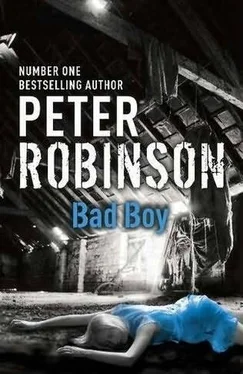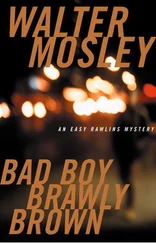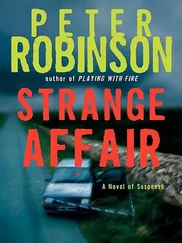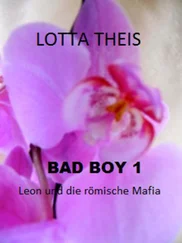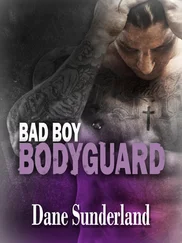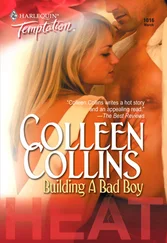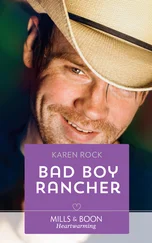Then there was Sophia’s betrayal. The image of her sitting across the table from another man in the wine bar, and later on, at her front door, of the man’s hand resting proprietarily on the small of her back as she put her key in the lock, glanced quickly up and down the street, and invited him into her house, still lingered. Her subsequent silence had hurt even more. He had left phone messages, written letters, but he had heard nothing. It was like dropping a stone into a deep dark chasm and waiting for a splash or echo that never came. No cry in the dark. Nothing. She had said she needed time, space, and she was certainly sticking to that.
After nearly two months of silence, Banks received a banal, chatty e-mail from Sophia, which ended, “I’ve moved on. You should do the same. Have a good life.” It was sent from her BlackBerry, for God’s sake, or so it informed him at the bottom. Definitely not with a bang; much more of a whimper. At least that quickly put paid to any lingering hopes of romantic reconciliation he might have been harboring. After that, he felt mainly contempt for Sophia. He didn’t like feeling that way about someone he had once loved, so he was working on indifference. It was the closest he could come to forgiveness.
Banks leaned against the wooden railing of a pier and stared across the bay at Mount Tamalpais, the sleeping maiden. He could make out her shape easily enough-the long, flowing hair, the soft curve of her breasts, the flat belly and thighs. She had drowned while swimming to meet her lover, or she had lain down there in dejection after being spurned, and had wept her tears into the bay, depending on which version you believed. Banks glanced down into the ruffled blue water, then back toward the majestic bridge, more orange than gold to his eye. He felt a sense of inner peace that he hadn’t had before he came away, and he thought of that night in the desert.
It was the third or fourth day of his trip, and he was in Arizona. He had visited the Grand Canyon and Sedona, and he now planned on driving across the desert from Phoenix to Los Angeles, then up the coast to San Francisco. As he drove, he played desert music on the car stereo through his iPod adapter, or what he thought of as desert music: Captain Beefheart, Lucinda Williams’s Car Wheels on a Gravel Road and Dylan’s soundtrack from Pat Garrett and Billy the Kid. He also played a lot of Handel oratorios very loud. Somehow they seemed to chime with the sense of the place for him.
He had driven a meandering course on and off Interstate 10, stopping occasionally to visit various attractions. Here he had experienced the desert landscape the way he had always imagined it. Mile after mile of nothing but sagebrush, tumbleweed, clumps of prickly pear and and tall, gangly saguaro cacti; unrelenting dry heat. In the evening the long range of jagged peaks that never seemed to get any nearer caught the fading light, all earthy shades of terra cotta, red and brown.
That night he had found a motel off the beaten track. It wasn’t quite the Bates Motel, but it had a similar creepy, run-down atmosphere about it, fortunately without the big eerie house on the hill behind. The desk clerk was sixty if he was a day, a bald Mexican with a paunch, a Pancho Villa mustache and a case of five o’clock shadow so advanced it was probably six or seven o’clock on his face, though it still stopped short of a beard. When the clerk smiled, Banks noticed that he was missing his two upper front teeth. At least he didn’t resemble Norman Bates in the slightest, and there wasn’t a stuffed animal in sight. The room Banks took was clean and quiet, and the small friendly diner next door served a good steak, though he would probably have had to travel a long way for a decent bottle of wine to accompany it. Instead, he settled for a jug of cheap California burgundy.
Around two in the morning, unable to sleep, Banks got up and walked outside. The desert nights were cool, but in August that meant the temperature went down from about anywhere between 85 and 100 to 75 or so, still T-shirt weather for a British tourist. Even so, Banks found he needed his light wind cheater that night as he struck out from the motel across the road into open desert. The stars shone bright and clear, more than he had ever seen before, so close he felt he could reach out and grab a handful, along with a yellow sickle moon. Not for the first time Banks wished he could recognize more constellations than Orion and the Big Dipper. He could see the Milky Way and trails of distant nebulae between the stars. Was that the Crab Nebula overhead? In front of him he could just make out the saw-toothed silhouette of a mountain range in the far distance.
He hadn’t really known what to expect from his journey, but that night he realized there was something he wanted, something ineffable, inchoate, and suddenly it didn’t seem so unbelievable that he might get it from a place such as this. He felt an odd tingle of anticipation, as if he was on the verge of what he had been waiting for, his revelation, his epiphany.
Someone had once told him that there were places you could go that would change you, which was probably why so many kids in the sixties set off for India or Kathmandu. It might be a country, a culture, religion, or perhaps a certain kind of landscape-the ocean, mountains, a desert. It might be a place associated with a powerful childhood experience, or with a dream. Sometimes, perhaps, you just didn’t know. But it changed you.
Banks had been having a dream from time to time since his childhood, and it stayed with him. He was swimming underwater through waving fronds that tried to grab him and pull him down. The dark rocks below terrified him with their shifting shapes, and with the thought of what lurked in the depths between them, through underwater tunnels that led to other tunnels, narrower, deeper and darker. He was running out of air, his lungs straining, his strength failing, when he finally broke the water’s surface and found himself on the edge of paradise. The damn thing was that he couldn’t remember anything about it. It was a special place, he knew that much, one that had the power to change him and heal him, but all he remembered was the journey, the darkness, the fear and agony of his bursting lungs, and that blissful moment when water ceased to be water and became air, when darkness became light and the white sand led…somewhere green and pure.
For so long he seemed to have been struggling in the dark, and in that desert night, when the motel’s blinking red neon was nothing but a dot on the horizon, he found an epiphany of a kind. But it was nothing momentous. No road to Damascus, no lightning strike of revelation or enlightenment, as he had hoped for. First, he was aware only of the silence when he stopped, a silence unlike any he had ever known-nothing rustling, no animal sounds, no birdsong, no distant cars or lorries. Nothing. Just the smell of dry earth and the tall, still silhouettes of the saguaro cacti, arms reaching out and up, all around him.
The epiphany, when it came, was nothing more than a simple fleeting ripple of happiness that went through him as a light cool breeze might brush one’s skin on a hot day. He felt as if something had clicked into place, like the final number of a combination lock, the tumblers finding their positions. That was all. He wasn’t even sure whether it was something opening or closing, but he knew that he would be okay, that he was okay, that he could deal with things. His problems didn’t matter in the midst of the desert night-the myriad stars above and grains of sand under his feet. He would still hurt. He would still carry the burden of his past mistakes. He would still feel the deep ache of loss and betrayal and guilt and horror. Paradise would always remain just beyond his reach. But he would go on somehow. Perhaps not in the same way he had been, doing the job he did, but somehow. Future uncertain. Prospects unclear. End always near. He remembered thinking that he was a long, long way from home, but, oddly enough, he didn’t feel so far away at that moment.
Читать дальше
